Assessment & Accreditation
Assessment is an essential part of teaching and learning from which learners and teachers gain an insight into progress and achievement. Its purpose is to make learning and teaching as effective as possible. It provides a means of ensuring that teaching is clearly targeted to ensure that provision matches assessed needs.
The assessment systems that we use enable us to accurately pitch objectives in lesson planning which detail learning expectations across the curriculum. The overriding principle of good assessment is that it should be clearly tied to its intended purpose which should be to inform classroom teaching practice and ensure that teaching effectively meets the needs of all our learners.
There are three main forms of assessment: day to day formative assessment, summative assessment and statutory assessment.
Diagnostic assessment is also used in collaboration with our multi-agency partners to identify and track the holistic needs of our learners.
Our oldest students participate in externally validated accreditation.
Overview
Assessment at Newfield is intended to ensure each learners makes the progress expected of them and to provide staff detailed information to assist them in planning the next stages of learning and development.
Our Assessment Reporting and Recording Policy can be found here.
The diagram below shows how different forms of assessment are part of the on-going assessment cycle at Newfield.
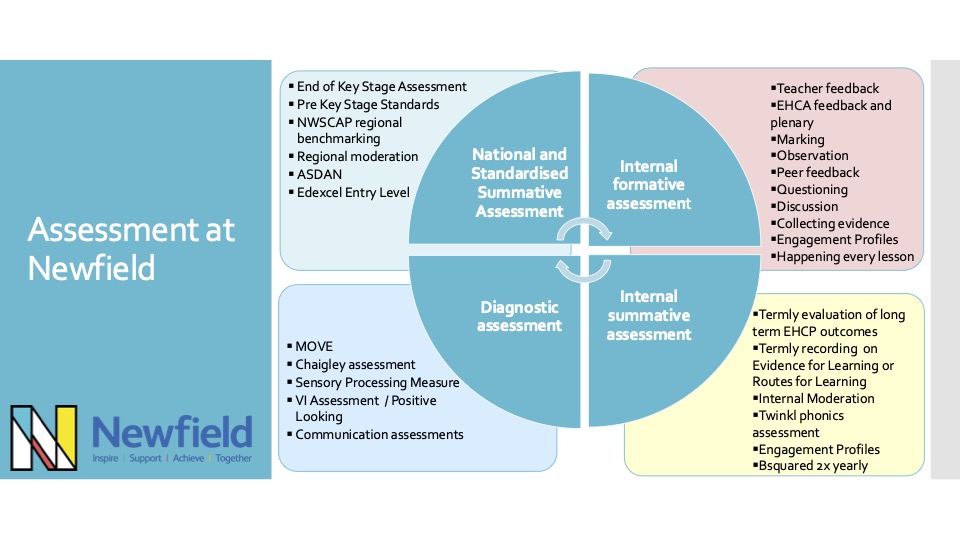
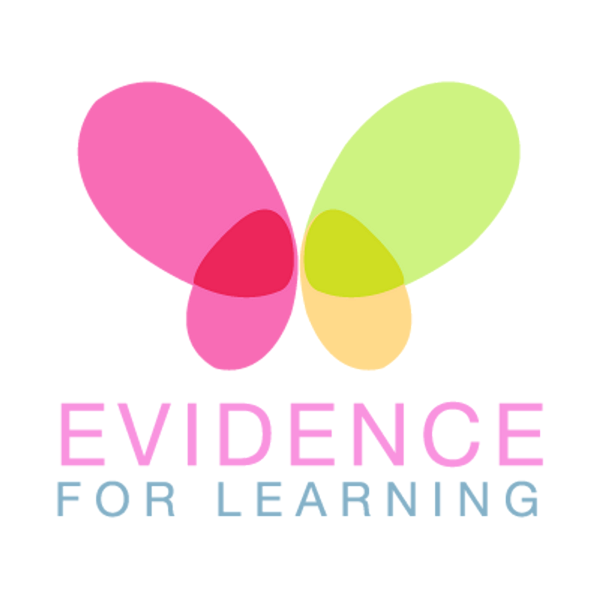
Evidence for Learning
Evidence for Learning is our chosen platform to capture and record evidence of learning and progress. Evidence is uploaded by class staff throughout each term and will include photographs, videos, comments and links to the Personalised Learning Plan targets and curriculum areas.
The Evidence for Learning app is the key tool used in gathering evidence to support and track the progress made by each learner. Through every pathway Evidence for Learning allows us to monitor progress towards EHCP outcomes as well as other aspects of the curriculum. We are continually evolving how the app is used to monitor progress.
Assessment
There is a comprehensive system of assessment, recording and reporting in the school that informs the planning process so that learners’ progress can be effectively monitored. As learners enter school there is an initial assessment completed to assist in setting targets for the pupils’ Personal Learning Plan (PLP). These assessments are based around the 4 elements of SEND ie; Communication & Interaction, Cognition & Learning, Physical & Sensory, and Social, Emotional & Mental Health. Each pupil follows a Personalised Assessment Pathway in line with their Education, Health & Care Plan. Learners accessing subject-specific learning are assessed using the B Squared Scheme which measures pupil progress on a year-by-year basis and effectively measures the extent to which pupils have progressed. The results of these assessments are used to compile whole-school targets for improvement. Learners’ PLPs relate directly to their Education Health and Care Plan through the Annual Educational Review process and enable the development and support of individual key skills and learning goals.
The curriculum progress of learners is tracked very closely using assessment systems designed to help staff identify and build upon the small steps of progress each learner is making. Pre-formal learners are assessed against Routes for Learning and learners accessing subject specific learning are tracked against individual schemes of work in Maths and English. More details of assessment and accreditation at Newfield are found here.
Pupils have the opportunity to enter for SATs assessments, if appropriate. Often these assessments tell us very little of what our children can do, but they are occasionally useful for a small number of our pupils. Through the Key Stage 4 and Post 16 curriculum, students complete modules of work and receive accreditations through examination bodies, e.g. ASDAN. Decisions regarding other examinations are based upon a child’s individual needs or capabilities.
On leaving the school students receive their final Record of Achievement, including their externally accredited examination certificates and a portfolio of work as part of a presentation package which details their achievements.
Accreditation
Learners access externally validated accreditation at key milestones in their school journey.
Arts Award – End of Key Stage 2 and 3
ASDAN Transition Challenge – End of Kay Stage 4
ASDAN Units in Personal Progress – End of Key Stage 5
Edexcel Entry Level – End of Key Stage 5 (as appropriate)
Education, Health and Care Plans
As learners enter school there is an initial assessment period to assist in setting targets for the Personal Learning Plan (PLP) of each individual. The plan based around the 4 elements of SEND ie; Communication & Interaction, Cognition & Learning, Physical & Sensory, and Social, Emotional & Mental Health. In addition to tracking progress towards the outcomes learners will also embark on an assessment pathway related to the learning pathway they are following.
EHCP outcome progress is tracked on the Evidence for Learning app where each learner’s Assessment Book includes the broken down termly targets they are working on, how these relate to the long-term targets and any evidence that has been collected which demonstrates the progress made towards these targets.
Below is an example of how this appears on the app
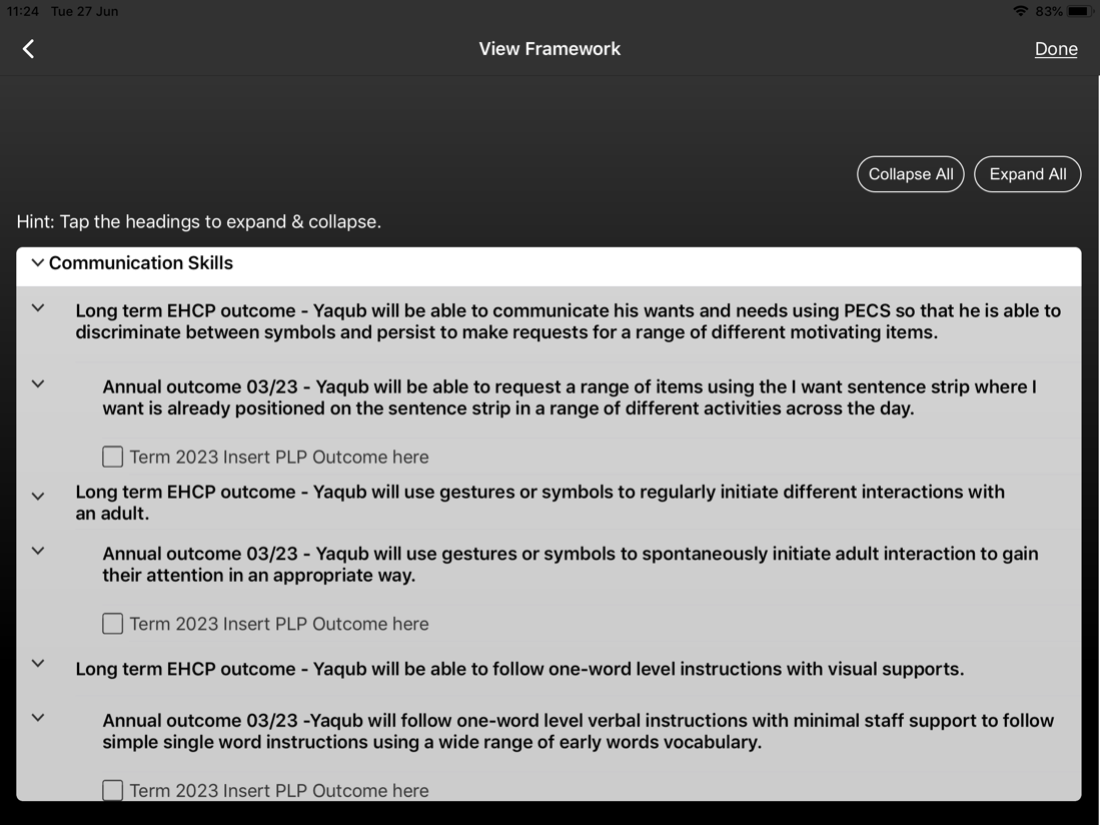
The progress towards the outcomes is monitored annually via the Annual Review process and consideration of the whether the outcome has been achieved is rated on the scale below:
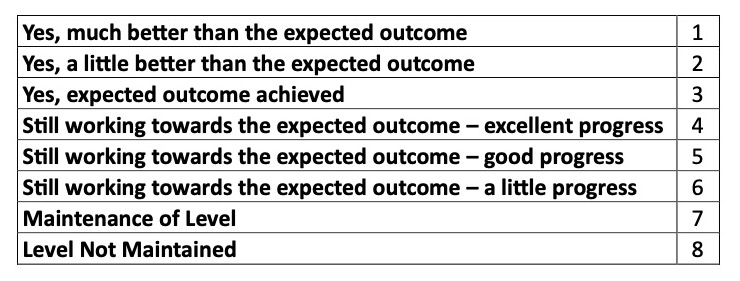
This information is supplied to parents and the Local Authority but also used in school to help us identify any trends or areas for development to support learner progress.
The collated information from this monitoring activity can be found on our Assessment, Accreditation and Exam results page.
Formative Assessment
On-going assessment is part of the fabric of every lesson and takes place through staff interaction with the learners. Staff give feedback to learners on how they are progressing in a variety of forms appropriate to the age and understanding of the learner.
Depending on the Pathway the learner is following evidence is gathered via Evidence for Learning and linked to the appropriate framework for the learner:
- Explorers - Explorers Framework on EfL
- Pre-Formal – Routes for Learning
- Semi-Formal – Newfield Individual Schemes of Work
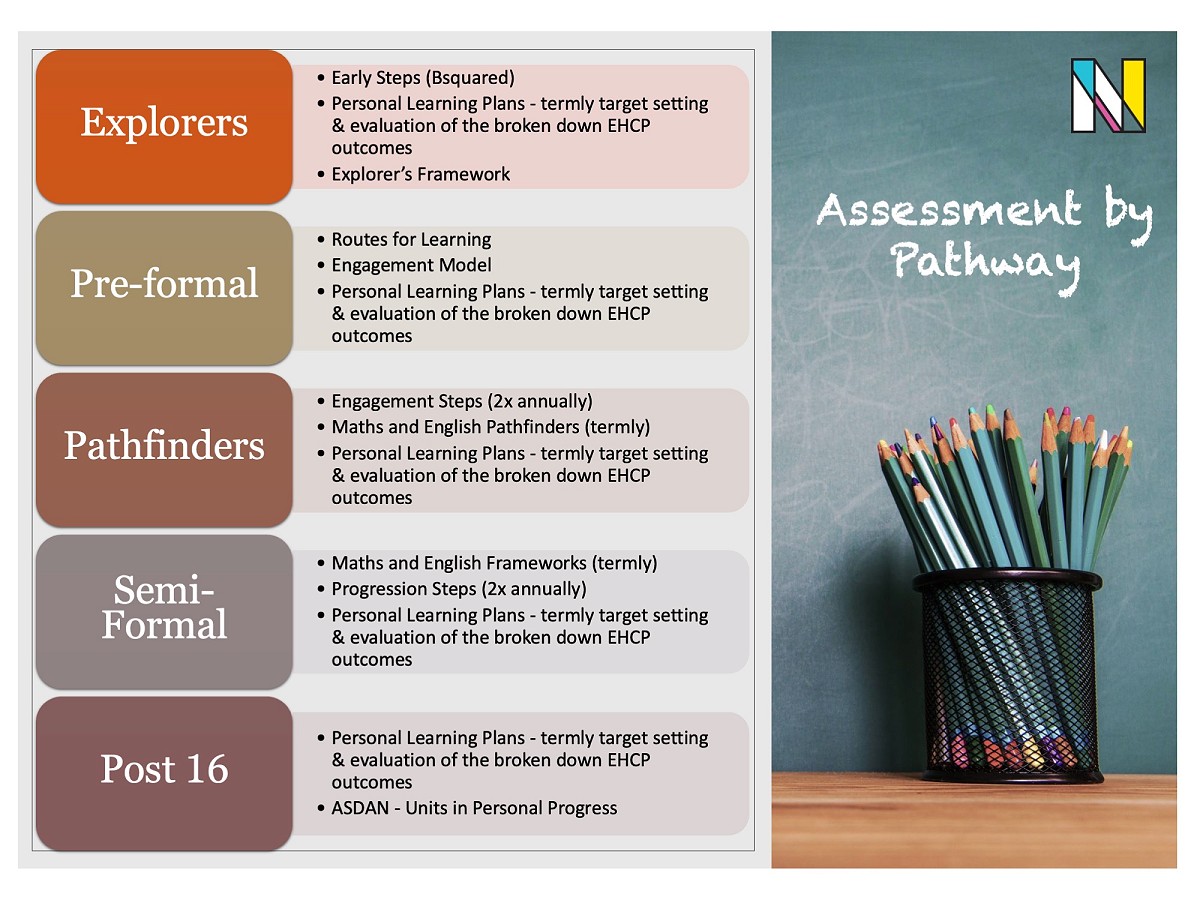
The frameworks are used to assist teachers in identifying suitable next steps for the learners.
An example of how this appears in the app can be seen below:
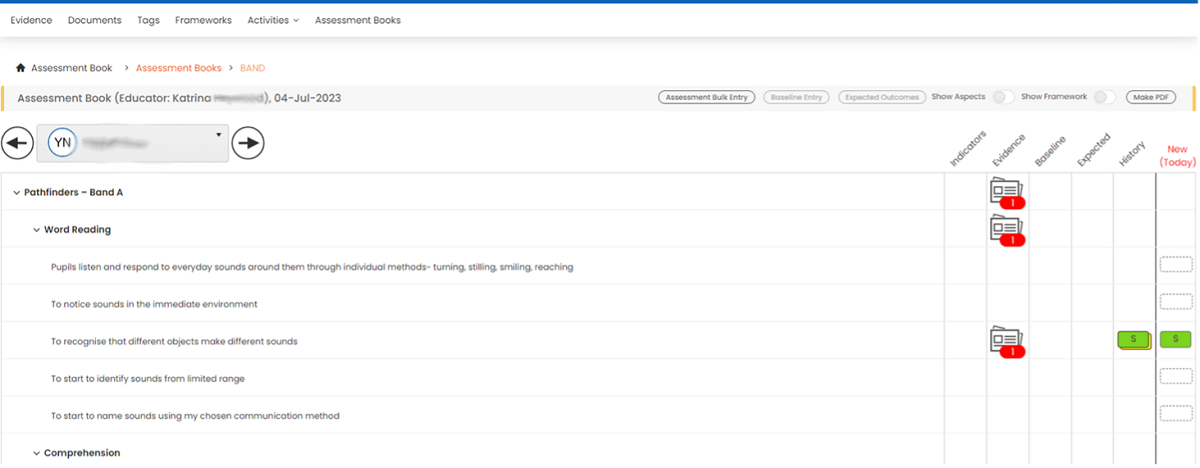
Evidence is shared with parents via the Evidence for Learning (EfL) portal or via Parent Consultation meetings and discussions.
The progress made is captured on an on-going basis and evaluated termly.
Feedback can be given to learners on their progress using augmented means - An example is shown below of the types of format this may take.
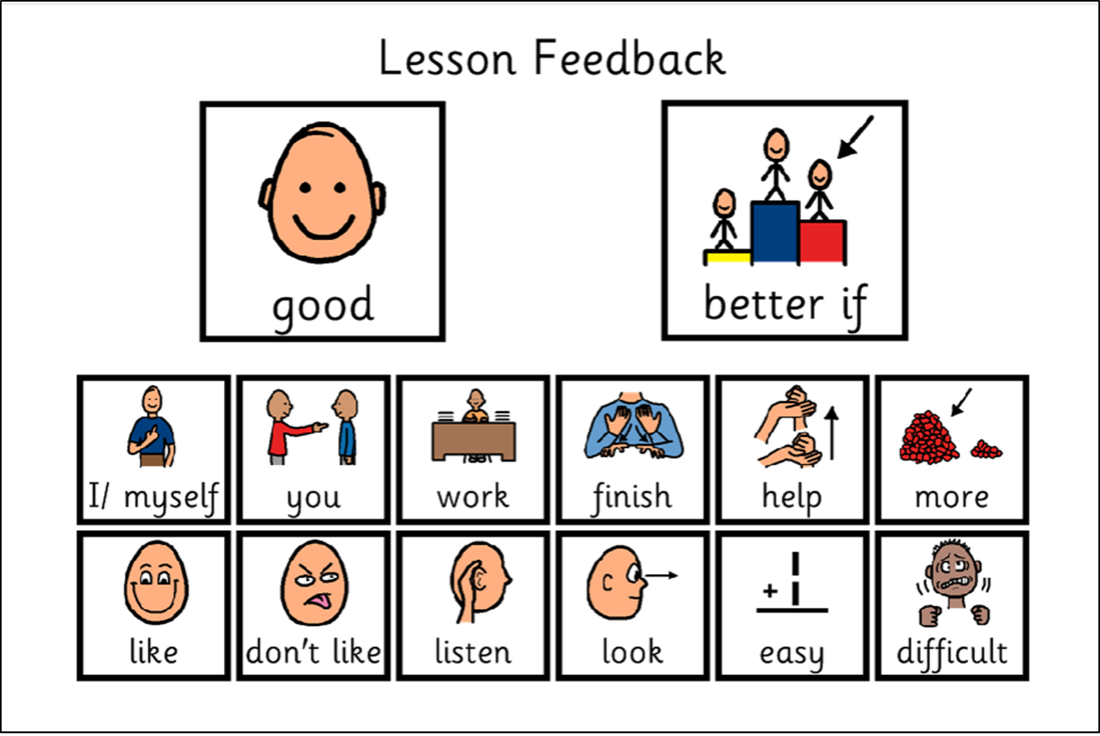
Summative Assessment
Progress towards curriculum and EHCP targets is measured on a termly basis. For learners on the Pre-Formal Pathway the Engagement model is used to assess pupils working at the pre-formal tier of the curriculum. Information from observations is captured on the Evidence for Learning app so it is easily shared with parents and other school staff.
All learners at Years 1-11 are assessed using BSquared which measures pupil progress on a year-by-year basis and effectively measures the extent to which pupils have progressed. The results of these assessments are used to help support the school in identifying strengths and areas for improvement.
Further information can be viewed here.
Statutory Summative Assessment
The Department for Education specifies statutory assessment requirements which schools are required to comply with. This includes:
- The Early Years Foundation Stage Profile (EYFSP)
- The Year 1 Phonics Check
- National Curriculum assessment at the end of Key Stages 1 (year 2) and 2 (year 6) in aspects of Reading, Writing, Mathematics and Science (in our setting using the pre-key stage standards frameworks and engagement model).
At Newfield all of our learners attain significantly below age-related expectations due to the nature of their complex needs. The End of Key Stage assessments are set at a level which makes them inaccessible to the majority our pupils and therefore our learners do not meet the eligibility criteria to take the tests. Consequently the results for statutory assessment at the end of each Key Stage do not present the best measure of the standards of achievement attained by our pupils. In school we use a variety of measures to recognise and celebrate the achievements of our pupils, including the B Squared scheme. Assessment information is considered termly via pupil progress meetings and moderated annually. The data is analysed by teachers, Area of Learning Leads and Deputy Head Teachers in order to identify progress and interventions to support improved results for individuals and groups of learners.
The outcomes of assessment against National Standards for the Academic Year can be found on our Assessment, Accreditation and Exam results page.
Accreditation
At Newfield, as our learners progress along their school journey, we offer avenues of accreditation suitable to the needs of each learner.
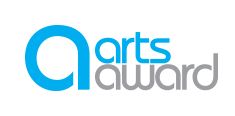
At the end of Key Stage 2 and 3 we offer learners the opportunity to gain an Arts Award, accredited by Trinity College London.
This is an evidence- based portfolio built up by the learner over a period of time demonstrating their skills and creative abilities in different exploratory forms of the creative arts.
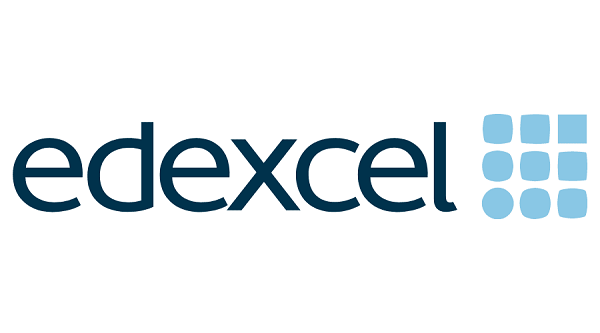

At the end of Key Stage 4 we offer learners the opportunity to gain the Transition Challenge Award run by ASDAN
And by the end of Key Stage 5 we aim for all students to gain a diploma in ASDAN Personal Progress.
Some students are additionally offered the opportunity to gain Entry Level qualifications in Maths or English. We are an exam centre for Pearson-Edexcel.
Our exam results for the Academic Year are shown on our Assessment, Accreditation and Exam results page.